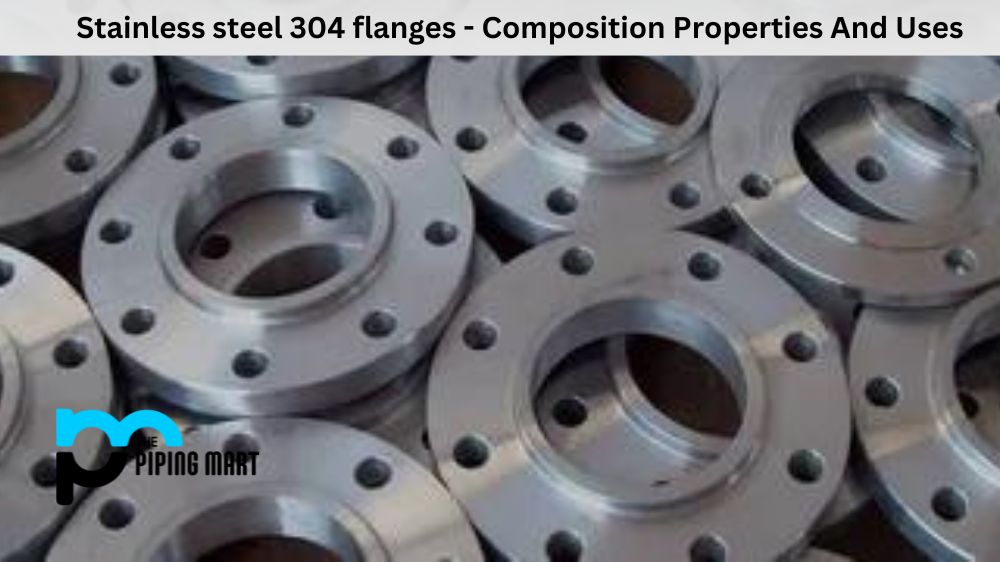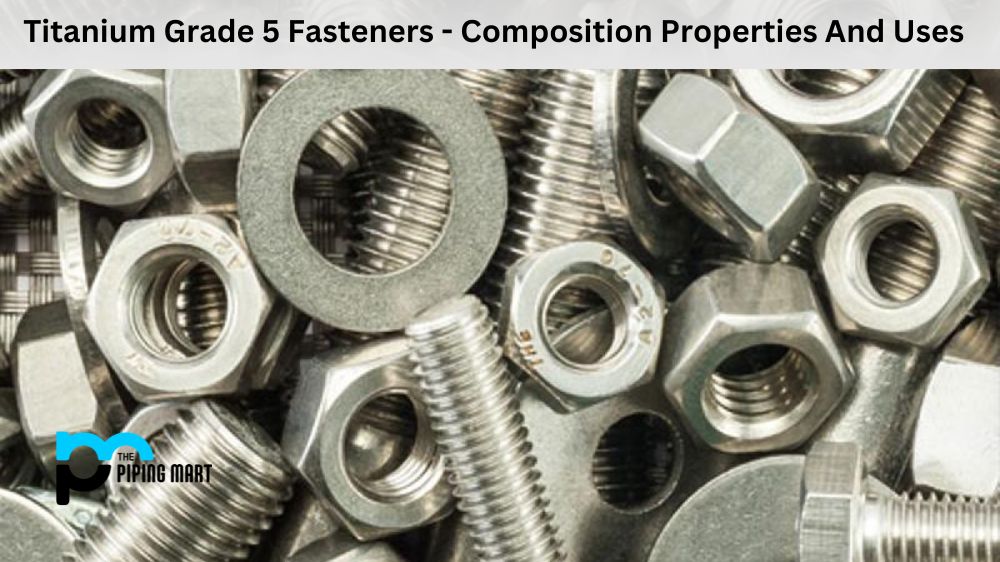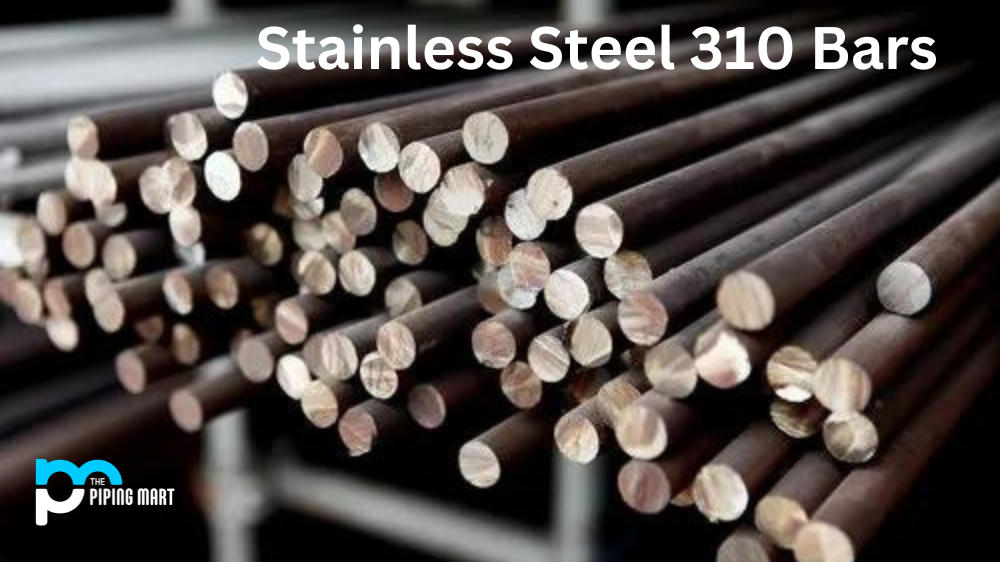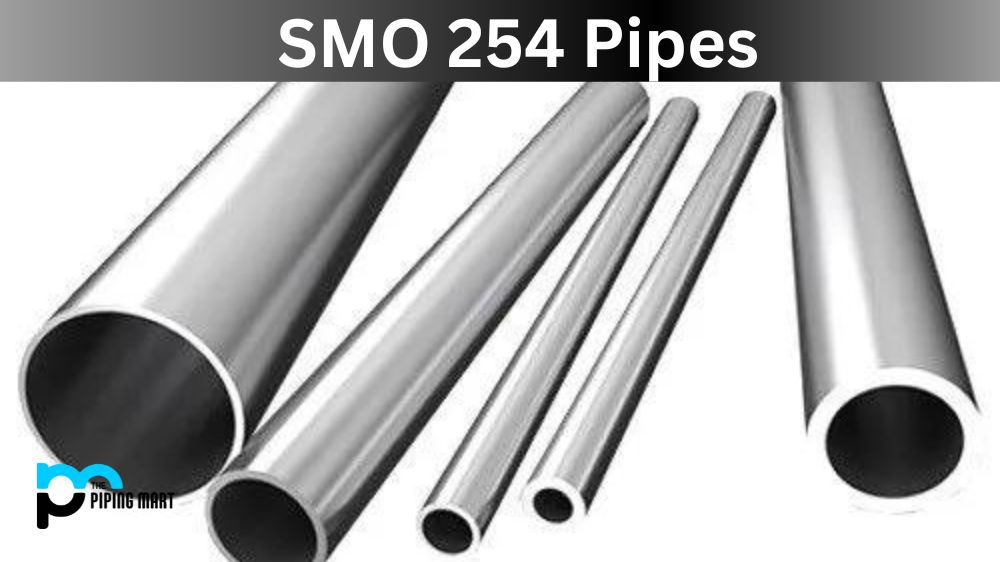Stainless steel 304 is one of the most widely used materials in the industrial sector. Its versatility, strength, and durability make it an excellent choice for various applications, including flanges. UNS S30400 Stainless Steel Weld Neck Flanges are commonly used in piping systems, where they serve as connectors for pipes, valves, and other elements. In this blog post, we’ll closely examine the composition, physical and mechanical properties, heat treatment, corrosion resistance, and uses of stainless steel 304 flanges.
What is SS 304 Flanges?
SS 304 Flanges are fittings used to connect pipes and equipment in various industries. They offer good corrosion resistance and superior strength over other grades of stainless steel and can be machined into shapes for various applications. These flanges are available in several sizes and pressure ratings, making them an ideal option for many systems.
Stainless Steel 304 Flanges Composition
DIN 1.4301 Slip on Flanges is an austenitic stainless steel alloy that contains 18% chromium and 8% nickel. It also has a small amount of carbon, contributing to its hardness and durability. Combining these elements gives UNS S30400 flanges excellent corrosion resistance, making them resistant to oxidation and staining.
|
Grade
|
C
|
Mn
|
Si
|
P
|
S
|
Cr
|
Mo
|
Ni
|
N
|
|
SS 304
|
0.08 max
|
2 max
|
0.75 max
|
0.045 max
|
0.030 max
|
18 – 20
|
–
|
8 – 11
|
–
|
Stainless Steel 304 Flanges Physical Properties
ASTM A182 F304 flanges have a density of 8.0 g/cm³ and a melting point of 1400-1450°C. They also have a high thermal conductivity of 16.2 W/m·K and a low coefficient of thermal expansion of 17.2 μm/m·K. These physical properties make stainless steel 304 flanges ideal for high-temperature applications that need to withstand heat and pressure.
Stainless Steel 304 Flanges Mechanical Properties
A182 F304 SORF Flange have a tensile strength of 515 MPa and a yield strength of 205 MPa. They also have a high hardness level, with a Rockwell hardness of B80 and a Vickers hardness of 129. These mechanical properties make stainless steel 304 flanges strong and tough, allowing them to withstand high-pressure and high-stress applications.
|
Density
|
Melting Point
|
Tensile Strength
|
Yield Strength (0.2%Offset)
|
Elongation
|
|
8.0 g/cm3
|
1400 °C (2550 °F)
|
Psi – 75000 , MPa – 515
|
Psi – 30000 , MPa – 205
|
35 %
|
Stainless Steel 304 Flanges Equivalent
|
STANDARD
|
WERKSTOFF NR.
|
UNS
|
JIS
|
BS
|
GOST
|
AFNOR
|
EN
|
|
SS 304
|
1.4301
|
S30400
|
SUS 304
|
304S31
|
08Х18Н10
|
Z7CN18‐09
|
X5CrNi18-10
|
Stainless Steel 304 Flanges Heat Treatment
SS 304 WNRF Flange are not typically subjected to heat treatment. However, they can be annealed to relieve stress and improve their flexibility. Annealing is a heat treatment process that involves heating the metal to a specific temperature and cooling it slowly in a controlled environment. This process helps to improve the mechanical properties of 304 stainless steel flanges and increase their resistance to corrosion.
Stainless Steel 304 Flanges Corrosion Resistance
SS304 flanges have excellent resistance to corrosion in a wide range of environments, including acidic, alkaline, and salty environments. This corrosion resistance is due to the high levels of chromium and nickel in the alloy, which form a protective layer of oxide on the surface of the metal. This layer helps prevent corrosion and staining, making 304 SS flanges a popular choice for applications with critical corrosion resistance.
SS304 Flanges Uses
SS 304 Blind Flanges are commonly used in various applications, including piping systems, oil and gas pipelines, chemical processing plants, and food and beverage processing equipment. They are also used in the pharmaceutical and biotech industries, where their corrosion resistance and durability are crucial for maintaining sterile environments. Stainless steel 304 flanges come in various sizes and shapes, making them suitable for various applications.
Conclusion:
304 Grade flanges are an excellent choice for various industrial applications. Their excellent corrosion resistance, strong mechanical properties, and versatile nature make them popular for piping systems, chemical processing plants, and many other applications. Understanding the composition, physical and mechanical properties, heat treatment, corrosion resistance, and uses of stainless steel 304 flanges can help you select the right material for your specific application and ensure your system operates reliably and efficiently.

Abhishek is a seasoned blogger and industry expert, sharing his insights and knowledge on various topics. With his research, Abhishek offers valuable insights and tips for professionals and enthusiasts. Follow him for expert advice on the latest trends and developments in the metal industry.




